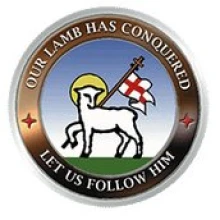
Background and Shape
The Moravian Church, originally called, the Unity of the Brethren, was formally organised as a communion in Kunvald, near the modern town of Zamberk, in the Northeastern region of the Czech Republic. Although formally established as a separate Church in 1457, its origins reach back some fifty–years earlier to the Czech Reformation, which arose in the wake of the martyrdom of Jan Hus at the Council of Constance in 1415. Merging into the Protestant movement that grew out of the Lutheran Reformation, which it preceded by some sixty years, the Moravian Church today is currently comprised of twenty–four independent provinces worldwide, as well as work in another 20 regions, which in time could also become independent provinces.
Presence in Ireland
The presence of the Moravian Church is Ireland is due mainly to the influence of the English evangelist John Cennick, who was active in these isles between 1746 and 1755. Cennick saw the Moravian Church as a place where ‘stray sheep’ could find a home. The Irish District is part of the Province known as the Moravian Church in Great Britain and Ireland. The Provincial Synod, which governs all matters relating to polity, practice and administration, meets every two years. The executive board, The Provincial Elders’ Conference (P.E.C), is based at the Provincial Offices in London. The congregations of the Irish District (currently 5), meets in conference twice yearly and the District Chair has delegated authority from the Conference, particularly in ecumenical matters.
Self–understanding, ministry and worship
The Moravian Church is aware of its being called to serve humanity through the proclamation of the gospel of Jesus Christ. It recognises this call to be the source of the church’s life and the inspiration for its service. With the wider ecumenical community we share faith in the Triune God, revealed as Father, Son and Holy Spirit for our redemption. The motto of the Church, Vicit Agnus Noster Eum sequa Mur (Our lamb has conquered, let us follow him), which can be found inscribed around a lamb carrying a flag in the seal of the church, put the emphasis and focus on Christ as the head of the church.
The Church observes a three–fold order of ordained ministry, Bishop, Presbyter and Deacons. The ordained clergy and appointed lay preachers, have the main responsibility for leading worship. The Lord’s Supper, over which the ordained clergy presides, is celebrated regularly, normally monthly. Some congregations also celebrate the Lovefeast, an informal meal shared, as part of worship, at which news of common interest in the worldwide Moravian Unity is given. The use of written liturgies is common but not obligatory but all services include lots of singing, Bible readings and a sermon. In addition to Sunday worship and Sunday Schools, congregation life include various activities which include Prayer Groups and Services, Bible Study, uniformed groups, Women’s meetings and other groups and clubs for all ages and gender. The Christingle service, had its origins in the Moravian Church and has been consistent and annual since 1747.
Aiming to give modern expression and priority to the role of prayer in the piety of the church, congregations of the District participate in the worldwide, Moravian, 365 continuous days of prayer in June of each year. This Prayerwatch, as it is called has been constant since 1727.
Ecumenical Commitment
The Moravian Church is fully involved in the ecumenical movement at regional and worldwide levels. In addition to the church’s membership in the World Council of Churches, the Province of Great Britain and Ireland belongs to the Churches Together in Britain and Ireland, the Irish Council of Churches, the Irish Inter–Church Meeting, and other local ecumenical forums.
The historic formula, “In Essentials Unity; in non–Essentials Liberty; in all things Charity”, which is used extensively throughout all Moravian Provinces, functions as a starting point for ecumenical engagement. The formula has been used for centuries in the Moravian Church and is descriptive of a way the Church engages issues in Church and society. This motto is found at the foot of a statute of Jan Hus in the old town square in Prague.
How to find out more
Website
Contact
Moravian Church House, 5 – 7, Muswell Hill, London, N10 3TJ
Telephone
+44 (0) 208 883 3409